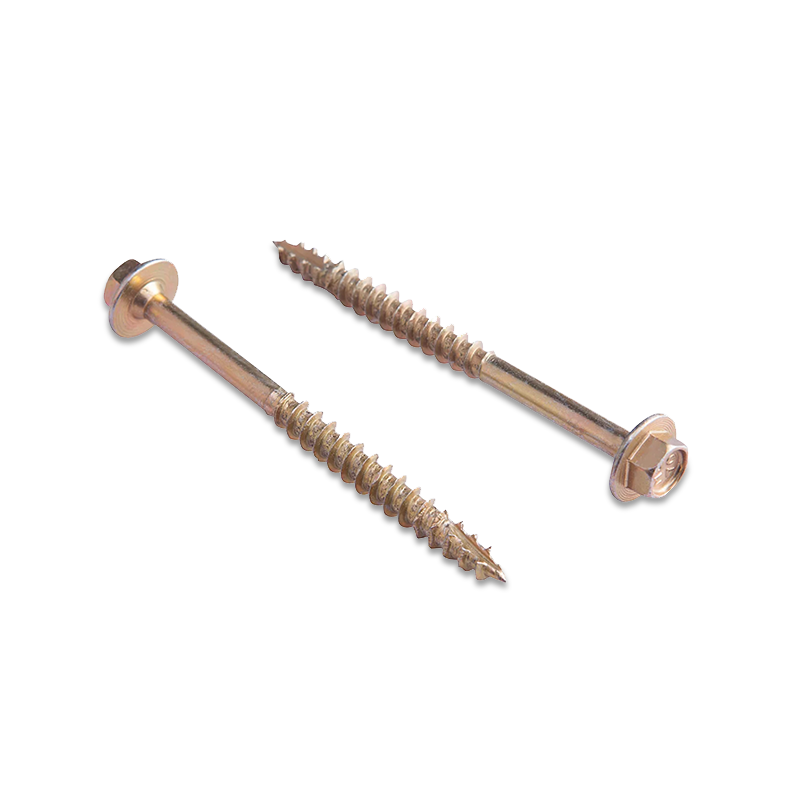What impact does surface treatment have on the corrosion resistance of products classified as Self-Drilling Screws?
Yuyao Cili Machinery Co., Ltd. is a fastener manufacturer located on the south bank of the Hangzhou Bay Cross-Sea Bridge in China. We are located at the intersection of the economic triangle centers of Shanghai, Hangzhou and Ningbo, enjoying a superior geographical location and convenient transportation conditions. . We are committed to providing high-quality products. With our rich experience in the fastener industry, we are able to customize production according to samples or drawings provided by customers to meet various application needs. The unique design of Self-Drilling Screws allows direct fastening without pre-drilling, and is widely used in construction, machinery, automobiles and other fields. However, self-drilling screws often face corrosion problems in practical applications, which can significantly affect their performance and life. Surface treatment is one of the key factors to improve the corrosion resistance of self-drilling screws. Its effect and method directly affect the performance and life of the screw. The effect of surface treatment on self-drilling screws on corrosion resistance will be discussed in detail below.
1. Necessity of surface treatment
Self-drilling screws may be exposed to corrosive media in many application environments, such as moisture, chemicals, salt spray, etc. These media will accelerate the corrosion of the screws. Therefore, surface treatment becomes a key step to improve the corrosion resistance of self-drilling screws. Proper surface treatment will not only extend the life of the screw, but also improve its overall performance and reliability.
2. Common surface treatment methods
The surface treatment of self-drilling screws mainly includes the following common methods, each of which has its own specific effects and scope of application.
Galvanizing: Galvanizing is a method of preventing corrosion by coating the surface of self-drilling screws with a layer of zinc. Galvanizing treatment can be divided into electro-galvanizing and hot-dip galvanizing.
Electro-galvanizing: Electro-galvanizing deposits a zinc layer on the surface of the screw through an electrochemical reaction to form a protective film. Although the protective effect of electro-galvanizing is relatively good, in very humid or corrosive environments, the coating can be quickly eroded.
Hot-dip galvanizing: Hot-dip galvanizing is to immerse screws in molten zinc to form a thicker protective layer of zinc. Compared with electro-galvanizing, hot-dip galvanizing provides stronger protection and is suitable for harsher environments.
Phosphating treatment: Phosphating treatment improves the corrosion resistance of screws by forming a phosphate film on the surface of the screws. The phosphate coating can improve the adhesion of screws and can also serve as a base for subsequent coatings. This treatment method is suitable where an additional protective coating is required, such as pre-treatment before painting or powder coating.
Coating treatment: Coating treatment includes various spraying and electrophoretic coating technologies, which prevent direct contact with corrosive media by covering the surface of the screw with a protective coating. Common coating materials include epoxy resin, polyurethane, etc. These materials can provide excellent corrosion resistance, especially in chemical corrosion or salt spray environments.
Oxidation treatment: Oxidation treatment enhances corrosion resistance by forming an oxide film on the surface of the screw. This film can improve the hardness and wear resistance of screws, and can also provide a certain anti-corrosion effect in some environments. Oxidation treatment is commonly used on aluminum alloy or stainless steel screws.
3. The specific impact of surface treatment on the corrosion resistance of self-drilling screws
Thickness of protective layer: The thickness of surface treatment directly affects the corrosion resistance of self-drilling screws. For example, hot-dip galvanizing can provide protection for a longer period of time due to its thicker zinc layer. While electro-galvanizing is also effective, its zinc layer is thinner and may corrode more quickly over long-term use. Similarly, the thickness of a coating affects its corrosion resistance.
Film adhesion: The adhesion of the surface treatment film affects its protective effect. Good adhesion can prevent the film from peeling off or peeling off, thereby maintaining long-term protection. Phosphating treatment is often used to improve coating adhesion and ensure that the coating is not easy to fall off during use.
Applicability of treatment methods: Different surface treatment methods are suitable for different environmental conditions. Galvanizing is suitable for general corrosive environments, while hot-dip galvanizing is suitable for more severe conditions. Coatings and phosphates can be combined with other anti-corrosion measures to provide more comprehensive protection.
Balance between cost and effect: The choice of surface treatment often requires a balance between cost and effect. For example, while hot-dip galvanizing and coating treatments can provide better corrosion resistance, they are more expensive. When the budget is limited, the most appropriate processing method can be selected based on actual needs.
4. Practical considerations
Environmental conditions: The corrosion resistance of self-drilling screws requires the selection of appropriate surface treatments based on their actual application environment. For example, in marine environments, salt spray corrosion is a major consideration, while in the chemical industry, corrosion by chemicals requires significant attention.
Service life: According to the service life requirements of the screw, choosing the appropriate surface treatment can significantly improve the performance of the screw. For example, in applications requiring long-term stability, hot-dip galvanizing or high-performance coatings can provide longer-term protection.
Maintenance and maintenance: Although surface treatment can improve the corrosion resistance of screws, regular maintenance and inspection are also key to ensuring long-term stable use of screws. Proper maintenance practices can help extend the life of screws and reduce corrosion problems.
The surface treatment of self-drilling screws plays an important role in improving their corrosion resistance. Choosing the appropriate surface treatment method can improve the performance and service life of the screw in various environments, and also ensure its stability in practical applications. Yuyao Cili Machinery Co., Ltd. is committed to providing customers with high-quality self-drilling screws and customized surface treatment solutions based on actual needs.



 English
English русский
русский









 Products
Products Tel: 86-574-62101087
Tel: 86-574-62101087 E-mail:
E-mail:  Add: Xiaocao 'e Binhai Industrial Park, Yuyao, Zhejiang, China
Add: Xiaocao 'e Binhai Industrial Park, Yuyao, Zhejiang, China